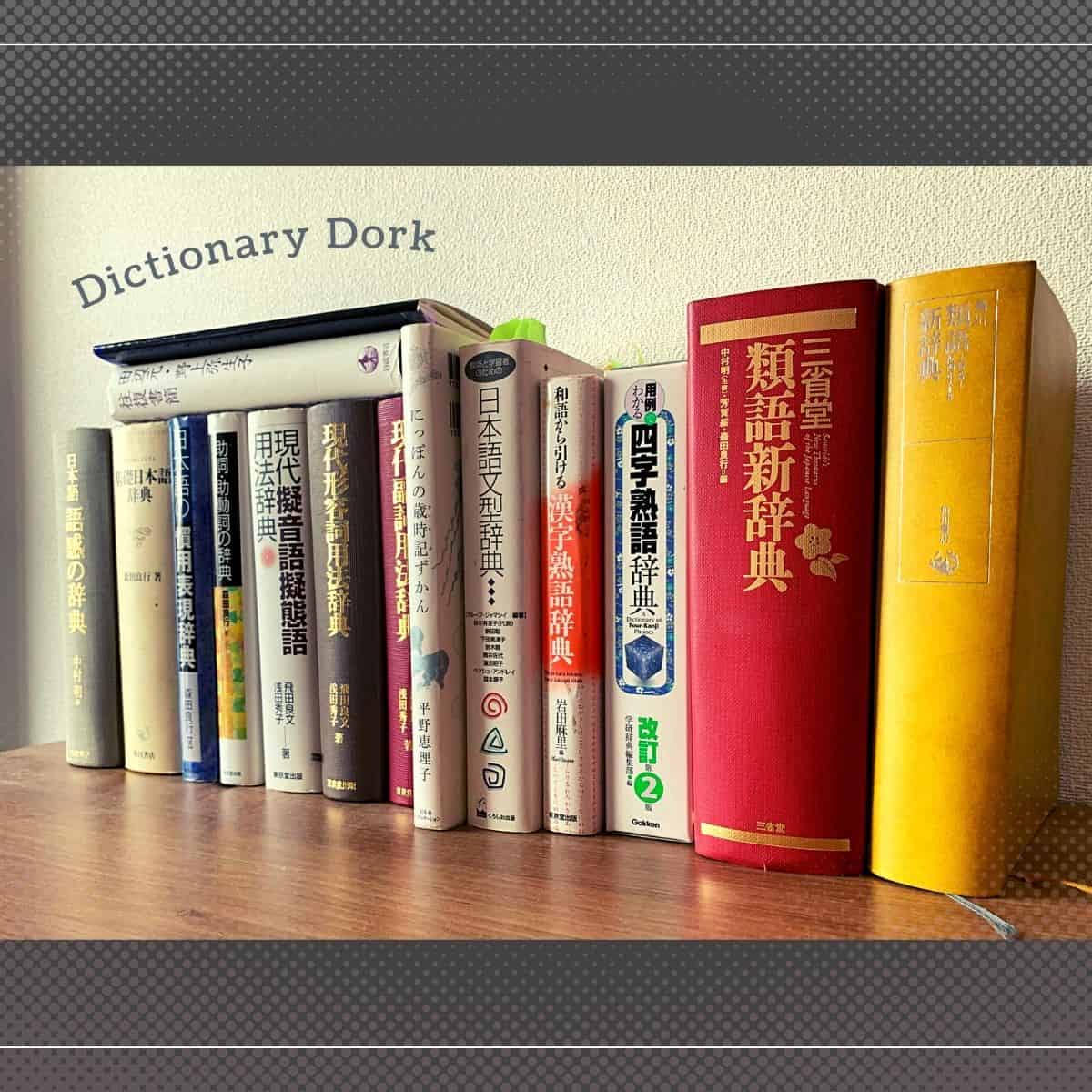Dictionary Dork
Excellent Japanese Language Dictionaries
Recommended dictionaries for advancing your understanding of the Japanese language, and the dictionaries we use to translate all of our work. Enjoy. Team Maplopo.
DICTIONARY DORK
People have hobbies. Some are into music, others like gardening. My sister, for example, is a big, obsessed Disney fanatic. She collects and collects Disney character goods—Mickey Mouse, Minnie Mouse, and Jack Skellington from “The Nightmare Before Christmas.” She just indiscriminately snatches them up with every bit of love and passion. It’s therefore natural that a decent-sized room in her home is filled with Mickeys. We call it… “Mickey’s Room.”
As for me, I’m big on dictionaries. I love them. I love digging deeper and deeper into words, jumping from one word to another, viewing them alongside related words and soaking them all in. So, naturally I collect dictionaries. Paper ones, of course, but a bunch of dictionary apps continually reside on the first screen of my phone. On my desk, dictionaries by different publishers and in different categories are arranged neatly, comfortably within reach. With this passion in me, it was reassuring to learn 1994’s Nobel Prize winner, Ōe Kenzaburō, had used his Kōjien dictionary (a MASSIVE volume like the Encyclopaedia Britannica) so frequently the pages have ended up falling off its binding.
Dictionary making has to be entirely arduous, and its accomplishment—truly, an admirable effort. I was listening to a talk given by the legendary scholar and linguist, Ōno Susumu PhD, who compiled “The Iwanami Dictionary of Early Forms of Japanese.” According to him, the work of defining a word drains so much out of a lexicographer he can only analyze up to three words a day. It is quite a lonely uphill battle defining words—though, sacred almost—and must require an enormous amount of patience and perseverance.
After years of steady attention to dictionaries, I’ve found my favorite lexicographer—Morita Yoshiyuki PhD. The most cherished dictionary in my collection is his “A Dictionary of Basic Japanese.” What’s so cool about this one is that he takes the most basic of words—even a simple auxiliary verb such as ようだ or a noun like まえ—and explains the words in full detail in a clear-cut way. For some entries, he spends four to five pages walking you through, step-by-step, several points of his analysis.
He systematically illustrates the semantic features of words, going over their histories, the similarities and differences between related words, tense and usage, and any common misconceptions. It feels as though each word is being dissected by Morita’s sharp surgical knife on an operation table. The whole experience of learning in this fashion is fascinating and borders on enlightenment… His work is truly worth a million in gold bullion!
I have huge respect for him, and one day I’d love to have the chance to meet and convey to him how much I appreciate his work and hold dear many of his books. “Mr. Morita…” I’d tell him, “You, sir, have incredibly inspired me to recognize that learning is the most endearing form of entertainment.”
Reiko
Co-founder, Maplopo
